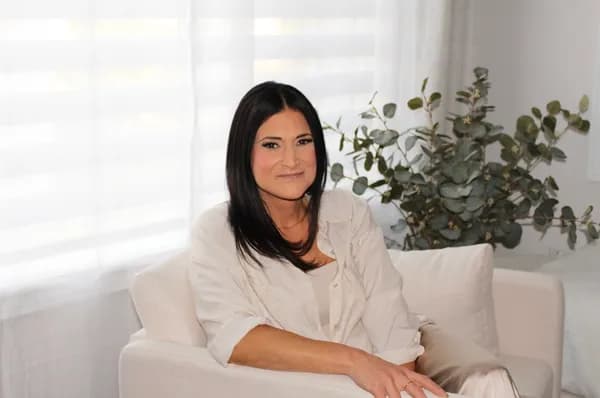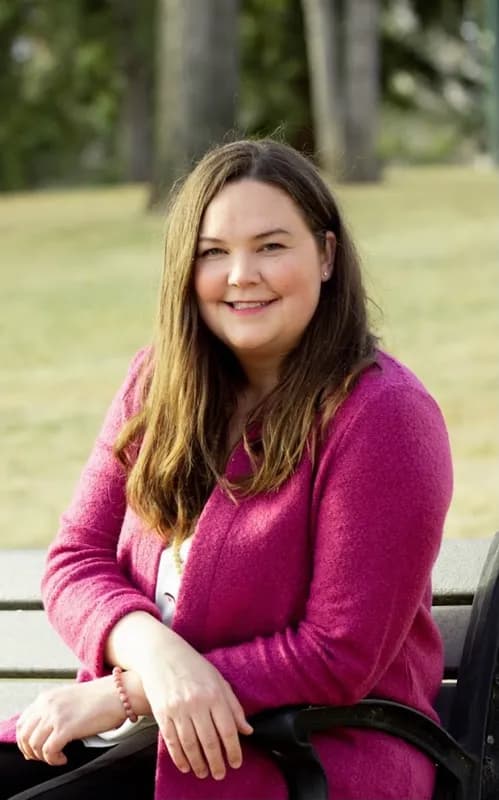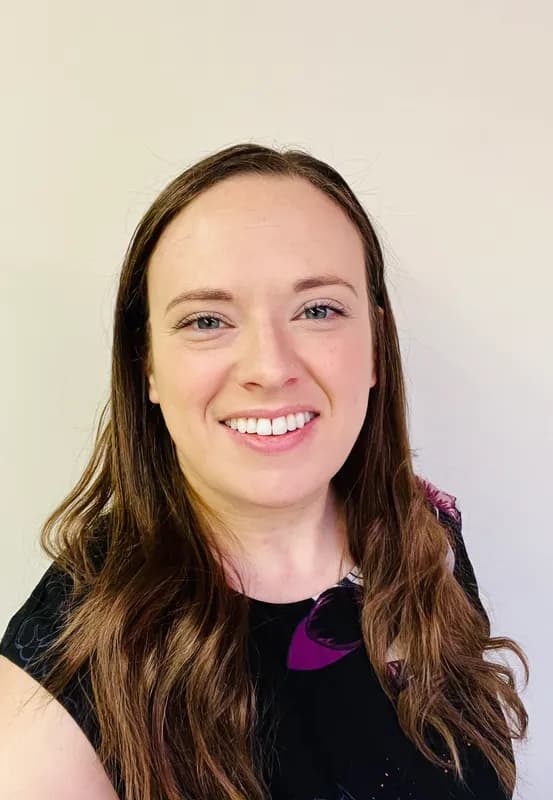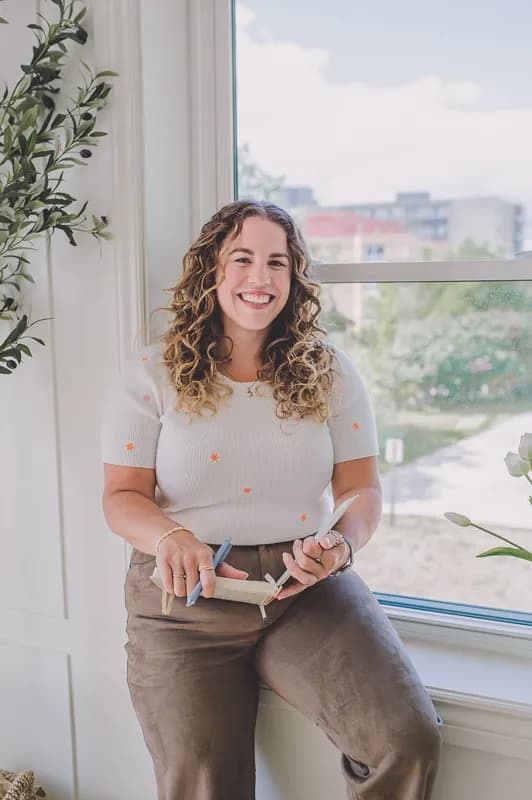Therapy for alcohol use

It’s just a drink, until it quietly becomes something you rely on more than you expected. Maybe you’ve tried cutting back. Maybe others have noticed. Or maybe you’re simply tired of the regret, anxiety, or fog that follows. With alcohol so woven into daily life, it makes sense that change feels harder than it should. Therapy can help you understand what’s happening and support you in building a healthier, more balanced relationship with drinking.
When drinking becomes more than social
The grey area
Not everyone who drinks too much fits the stereotype of "alcoholic." Many people exist in a grey area where drinking hasn't destroyed their life yet, but it's definitely affecting their health, relationships, sleep, mood, or self-respect. You might be functioning fine at work, maintaining friendships, and meeting responsibilities, but privately wondering if you drink more than you should. You might set limits that you can't stick to, drink alone more often, or feel defensive when someone mentions your drinking.
Recognizing the pattern
Alcohol use disorder exists on a spectrum. Some people experience a few symptoms; others experience many. You might find yourself drinking more than intended, spending significant time drinking or recovering from hangovers, or continuing despite knowing it's causing problems. Physical signs can include needing more alcohol to feel the same effects, experiencing withdrawal symptoms like shakiness or anxiety when you stop, or having strong cravings. Psychological signs include drinking to cope with stress or emotions, feeling guilt or shame about drinking, or organizing your life around when you can drink next.
The reality in Canada
Alcohol is the most commonly used psychoactive substance in Canada. In 2019, about 77% of Canadians aged 15 and older reported drinking alcohol in the past year. Of these drinkers, approximately 18% exceeded Canada's Low-Risk Alcohol Drinking Guidelines. Canadian Alcohol and Drugs Survey, 2019. Alcohol contributes to over 200 disease and injury conditions and was responsible for nearly 15,000 deaths in Canada in 2017. Canadian Substance Use Costs and Harms report. These numbers matter because they show you're not alone, and the problem is significant enough to warrant real support.
Understanding alcohol use in Canada
Sources: Canadian Alcohol and Drugs Survey and CCSA costs and harms report.
Different patterns of problematic use
Some people drink daily, having a few glasses of wine every evening. Others binge drink on weekends, consuming large amounts in short periods. Some drink throughout the day to manage withdrawal or anxiety. Others go through cycles of abstinence followed by heavy drinking. You might drink primarily when stressed, sad, or bored. Or you might drink socially but find you can't stop once you start. There's no single profile, but if drinking is causing problems in your life and you're finding it difficult to change on your own, that's what matters.
The real cost of drinking
Physical health consequences
Alcohol affects nearly every organ system. Liver disease, cardiovascular problems, increased cancer risk, weakened immune system, digestive issues, and brain changes all develop over time with regular heavy drinking. You might notice poor sleep quality, low energy, weight changes, or frequent illness. Even moderate drinking carries health risks. The good news is that many of these effects can improve significantly when you stop or reduce drinking.
Mental health and emotions
Alcohol is a depressant. While it might temporarily ease anxiety or sadness, it ultimately worsens mental health. You might experience increased anxiety the day after drinking, mood swings, irritability, or depression. Many people drink to cope with difficult emotions, creating a cycle where alcohol becomes both the problem and the attempted solution. Therapy helps you develop healthier ways to manage feelings without relying on alcohol.
Relationships and daily life
Partners lose patience. Kids feel uncertain or unsafe. Friends stop inviting you to certain events. Work performance slips due to hangovers or preoccupation with drinking. Financial strain builds from spending on alcohol and related costs. You might isolate yourself to drink without judgment or miss important moments because you were intoxicated. Reducing or stopping alcohol can rebuild trust and restore the connections that give life meaning.
How therapy addresses alcohol use
Why working with a specialist matters
Changing your relationship with alcohol is rarely about willpower alone. A therapist who specializes in alcohol use understands the neuroscience of dependence, the psychological functions alcohol serves in your life, and the practical challenges of changing behaviour in a culture where drinking is everywhere. They won't shame you or push a specific agenda. Instead, they'll help you explore your relationship with alcohol honestly, identify what you want to change, and develop a realistic plan that accounts for your unique circumstances.
The therapeutic approach
Treatment begins with understanding your drinking pattern, what triggers it, and what role it plays in your emotional life. Your therapist will assess whether medical supervision is needed for withdrawal and discuss your goals. Some people want complete abstinence; others want to moderate. Your therapist helps you choose an approach that's both safe and sustainable. You'll develop skills for managing cravings, coping with triggers, handling social pressure, and addressing the underlying issues that alcohol has been masking.
Evidence-based treatment options
Cognitive behavioural therapy
CBT for alcohol use helps you identify the thoughts, feelings, and situations that lead to drinking. You'll learn to challenge beliefs like "I need a drink to relax" or "I can't have fun without alcohol." Practical skills include managing cravings, refusing drinks, and developing alternative coping strategies. CBT has strong research support for treating alcohol use disorder and is recommended in clinical guidelines. Carroll & Kiluk, 2018.
Motivational enhancement therapy
If you're ambivalent about changing your drinking, motivational enhancement therapy can help. Rather than telling you what to do, your therapist helps you explore your own reasons for change and resolve the internal conflict between wanting to drink and wanting to stop. This collaborative approach has proven effective, particularly in early treatment stages. Kumar et al., 2021.
Relapse prevention therapy
Stopping is one thing; staying stopped is another. Relapse prevention teaches you to identify warning signs, high-risk situations, and seemingly irrelevant decisions that precede drinking. You'll develop a detailed plan for managing triggers, create strategies for handling slips without full relapse, and build a lifestyle that supports sobriety. This approach significantly reduces relapse rates when practiced consistently.
Addressing underlying issues
Many people drink to cope with trauma, anxiety, depression, chronic stress, or relationship problems. Effective therapy addresses both the drinking and what drives it. Your therapist might integrate trauma work, teach emotion regulation skills, or help you process difficult experiences that alcohol has been numbing. Treating co-occurring conditions alongside alcohol use leads to better long-term outcomes.
Medication options
Several medications can support alcohol use treatment. Naltrexone reduces cravings and the rewarding effects of alcohol. Acamprosate helps with abstinence by reducing withdrawal symptoms. Disulfiram causes unpleasant reactions if you drink, creating a deterrent. When combined with therapy, these medications can significantly improve outcomes. CAMH alcohol treatment information.
Your treatment journey
Comprehensive assessment
Your first session involves honest conversation about your drinking history, current patterns, previous attempts to change, and what's bringing you to therapy now. Your therapist will screen for withdrawal risk, assess co-occurring mental health concerns, and discuss your goals. This might include considering whether you need medical detox, exploring medication options, or identifying immediate safety concerns. You'll leave with clarity about next steps.
Active treatment phase
Weekly sessions focus on building coping skills, identifying triggers, managing cravings, and addressing the thoughts and emotions that drive drinking. You'll practice new behaviours between sessions and track your progress. Early recovery can be uncomfortable as your brain and body adjust. Your therapist helps you navigate this period with practical support, encouragement, and adjustments to your plan when needed. This phase typically lasts several months.
Maintenance and growth
As your confidence grows and you accumulate weeks or months of progress, sessions might space out to biweekly or monthly. The focus shifts to maintaining changes, building a meaningful life beyond alcohol, repairing relationships, and preventing relapse. You'll develop a long-term plan for staying on track that doesn't require ongoing therapy. Some people benefit from periodic check-ins; others graduate completely.
Find a therapist for alcohol use
Choosing the right therapist matters. Each province in Canada has its own regulations, which is why working with a recognized professional can make a real difference in your care. Stellocare takes the uncertainty out of the process by listing only verified therapists you can trust.
The right therapist for you
No therapists found with these specialties in Ontario.
Try selecting a different province.Resources and strategies
Canadian alcohol support services
Canada's Guidance on Alcohol and Health
Evidence-based information about alcohol's health effects and guidance on lower-risk drinking. Updated in 2023 to reflect current research. Essential reading for anyone examining their relationship with alcohol. Read the guidance.
CAMH Alcohol Treatment Programs
Outpatient and day treatment programs, medical withdrawal management, and specialized services. Located in Toronto with information relevant across Canada. Explore programs.
Alcoholics Anonymous Canada
Free peer support meetings across Canada, in-person and online. No therapists or professionals, just people with lived experience helping each other stay sober. Find meetings.
Moderation Management
If you're not ready for abstinence or believe moderation is right for you, this program offers support for reducing drinking to safer levels. Research-based approach with online and in-person options. Visit website.
Rethinking Drinking
Interactive tools from the National Institute on Alcohol Abuse and Alcoholism to assess your drinking, calculate standard drinks, track patterns, and explore whether change might be beneficial. Use the tools.
Practical steps you can take now
Understanding your drinking
- Track honestly for one week: record every drink, when you drank, where, with whom, and what you felt before and after. Patterns emerge when you actually look at the data.
- Calculate your intake: one standard drink is 341 mL (12 oz) beer at 5% alcohol, 142 mL (5 oz) wine at 12%, or 43 mL (1.5 oz) spirits at 40%. Most people underestimate their consumption.
- Identify your triggers: certain times, places, emotions, or people consistently precede drinking. Knowing your triggers lets you plan responses.
Managing cravings and urges
- Wait it out: cravings peak at around 3-5 minutes then gradually decrease. Set a timer for 10 minutes and do something else. Often the urge passes.
- Challenge the thought: when you think "I need a drink," ask yourself what you actually need. Relaxation? Connection? Escape? Then address that need differently.
- Have alternatives ready: sparkling water with lime, herbal tea, going for a drive, calling someone. Make the alcohol-free option easier to access than alcohol.
Changing your environment
- Remove alcohol from home: don't keep it around while you're working on changing. This eliminates impulsive drinking and makes conscious choice necessary.
- Prepare for social situations: have your response ready when offered drinks. Practice saying "I'm not drinking tonight" or "I'm taking a break." You don't owe detailed explanations.
- Find new activities: if your social life centres on bars or drinking, explore alternatives. Join a sports league, take a class, volunteer, or host alcohol-free gatherings.
Try Drink Coach for self-assessment and goal-setting, Sunnyside for moderation support with text-based coaching, or I Am Sober to track alcohol-free days and connect with others in recovery. Choose tools that match your goals, whether that's abstinence or moderation.
Questions about changing your drinking
How do I know if I really have a problem
If you're asking this question, it's worth exploring honestly. A problem exists when drinking causes negative consequences and you find it difficult to change despite wanting to. You don't need to hit rock bottom or lose everything to deserve help. If drinking concerns you or affects your health, relationships, work, or sense of self, that's enough.
Is abstinence the only option
Not necessarily. For people with severe alcohol use disorder or certain medical conditions, abstinence is the safest goal. For others, moderation may be possible, though it often requires more discipline than abstinence. Your therapist can help you determine what's realistic and safe for you. If moderation isn't working after a genuine effort, abstinence often becomes the clearer path.
Do I need medical detox
If you've been drinking heavily and daily for an extended period, stopping suddenly can be dangerous. Alcohol withdrawal can cause seizures and other serious medical complications. Your therapist or doctor will assess your risk and may recommend medically supervised detox. Be honest about your drinking pattern so you can be safe.
What if everyone around me drinks
This is challenging but common. You might need to temporarily limit time with certain people, find new social circles that support your goals, or become comfortable being the only person not drinking. Your true friends will respect your decision. Some relationships may change, but your health and wellbeing come first.
How long until I feel better
Physical improvements often begin within days to weeks: better sleep, clearer thinking, more energy, improved mood. Psychological and social improvements take longer as you rebuild trust, develop new coping skills, and establish a life without alcohol. Many people notice significant positive changes within three to six months of sustained sobriety or reduced drinking.
Related concerns
References
- Health Canada. Canadian Alcohol and Drugs Survey (CADS): Summary of results for 2019. Retrieved from https://www.canada.ca/en/health-canada/services/canadian-alcohol-drugs-survey/2019-summary.html
- Canadian Centre on Substance Use and Addiction. Canadian substance use costs and harms (2007-2020). Retrieved from https://csuch.ca/assets/documents/reports/english/Canadian-Substance-Use-Costs-and-Harms-Report-2007-2020-en.pdf
- Canadian Centre on Substance Use and Addiction. Canada's Guidance on Alcohol and Health: Final Report. Retrieved from https://www.ccsa.ca/canadas-guidance-alcohol-and-health
- Centre for Addiction and Mental Health. Alcohol. Retrieved from https://www.camh.ca/en/health-info/mental-illness-and-addiction-index/alcohol
- Kumar S., et al. (2021). Effect of Motivational Enhancement Therapy (MET) on the self efficacy of Individuals of Alcohol dependence. J Family Med Prim Care, 10(1), 367-372. Retrieved from https://pmc.ncbi.nlm.nih.gov/articles/PMC8132760/
- Alcoholics Anonymous. Find A.A. near you. Retrieved from https://aa.org/
- Moderation Management. About moderation management. Retrieved from https://moderation.org/
- National Institute on Alcohol Abuse and Alcoholism. Rethinking Drinking. Retrieved from https://www.rethinkingdrinking.niaaa.nih.gov/
About Stellocare
Stellocare is a Canadian platform where you can find the best fit therapist for you. Search the right thperaists now by asking our AI, browsing our list, or finding our social workers for personal referral.

Riffat Yusaf
Registered Psychotherapist (ON)

Jessica DeMille
Registered Psychotherapist (Qualifying) (ON)

Joanne Prysunka
Canadian Certified Counsellor

Rex Cheung
Registered Social Worker (ON)

Li Li
Registered Psychotherapist (Qualifying) (ON)

Kat Sevsek
Registered Psychotherapist (Qualifying) (ON)

Shaye Stephenson
Registered Psychotherapist (Qualifying) (ON)

Carol Ma
Registered Social Worker (ON)

Tiphanie Routier
Thérapeute en relation d'aide (QC)

Stephanie Neshcov
Registered Psychotherapist (Qualifying) (ON)

Vanessa Fingland
Counselling Therapist (AB)

Cameron Whatram
Registered Clinical Counsellor (BC)

Carissa Cochrane
Canadian Certified Counsellor

Peter Wong
Registered Psychotherapist (ON)

Devyn Eadie
Registered Psychotherapist (ON)

Shayesteh Zarieh
Registered Psychotherapist (Qualifying) (ON)

Caitlin Pelkey
Registered Psychotherapist (Qualifying) (ON)

Chelsea Jackson
Registered Psychotherapist (ON)

Judith Klapak
Counselling Therapist (AB)

Anna Evans
Registered Social Worker (ON)

Riffat Yusaf
Registered Psychotherapist (ON)

Jessica DeMille
Registered Psychotherapist (Qualifying) (ON)

Joanne Prysunka
Canadian Certified Counsellor

Rex Cheung
Registered Social Worker (ON)

Li Li
Registered Psychotherapist (Qualifying) (ON)

Kat Sevsek
Registered Psychotherapist (Qualifying) (ON)

Shaye Stephenson
Registered Psychotherapist (Qualifying) (ON)

Carol Ma
Registered Social Worker (ON)

Tiphanie Routier
Thérapeute en relation d'aide (QC)

Stephanie Neshcov
Registered Psychotherapist (Qualifying) (ON)

Vanessa Fingland
Counselling Therapist (AB)

Cameron Whatram
Registered Clinical Counsellor (BC)

Carissa Cochrane
Canadian Certified Counsellor

Peter Wong
Registered Psychotherapist (ON)

Devyn Eadie
Registered Psychotherapist (ON)

Shayesteh Zarieh
Registered Psychotherapist (Qualifying) (ON)

Caitlin Pelkey
Registered Psychotherapist (Qualifying) (ON)

Chelsea Jackson
Registered Psychotherapist (ON)

Judith Klapak
Counselling Therapist (AB)

Anna Evans
Registered Social Worker (ON)

